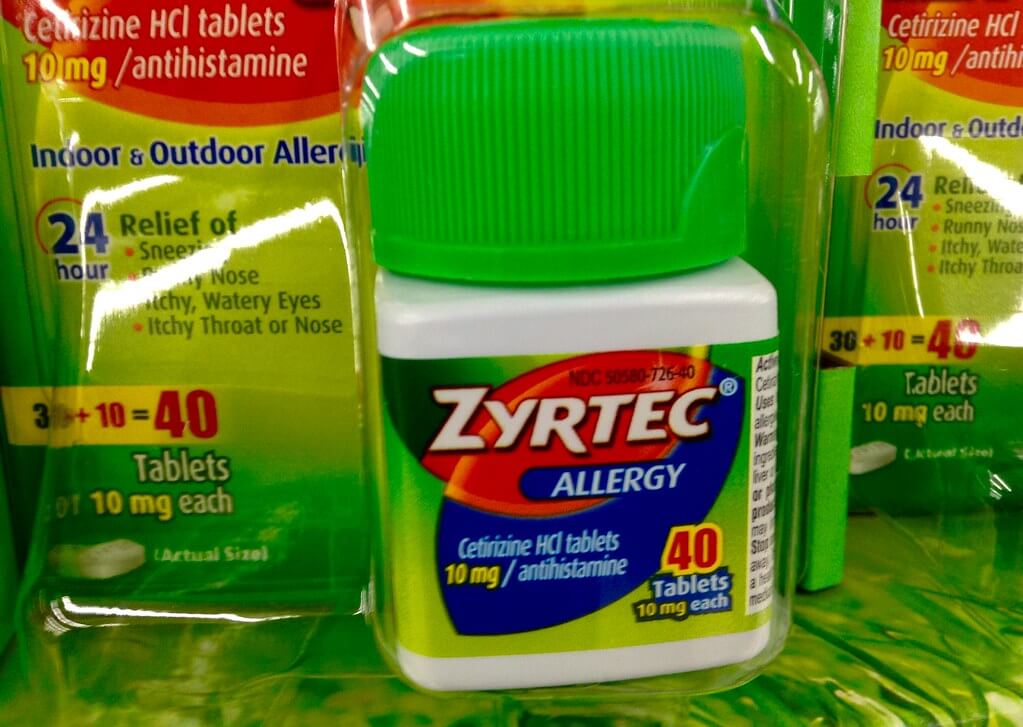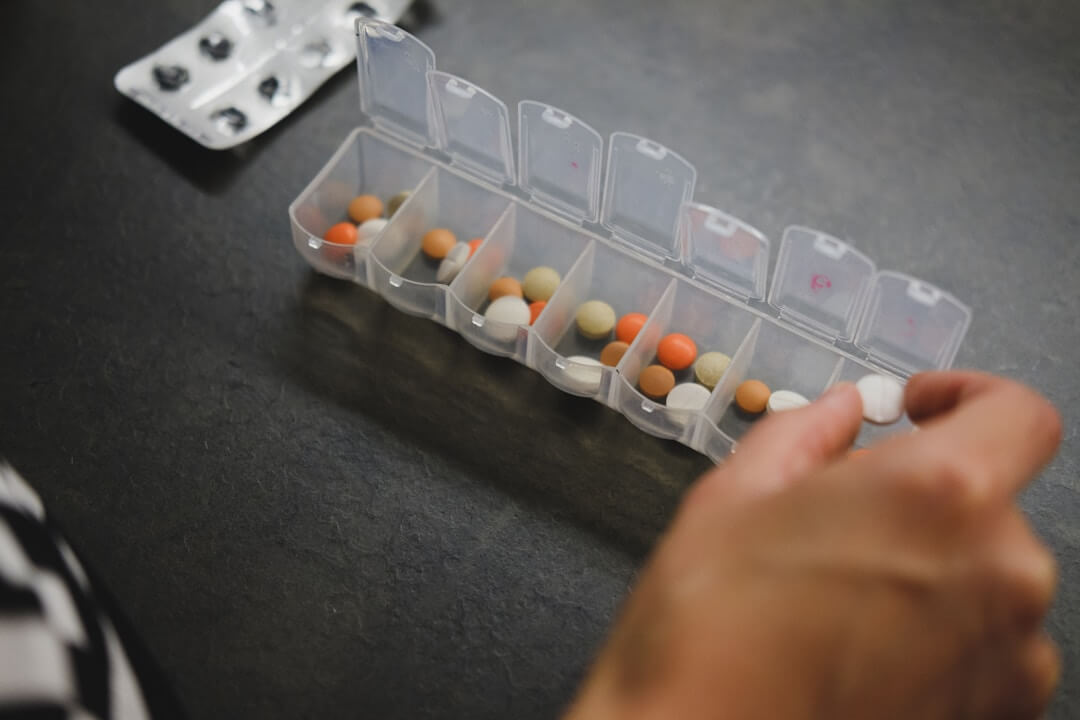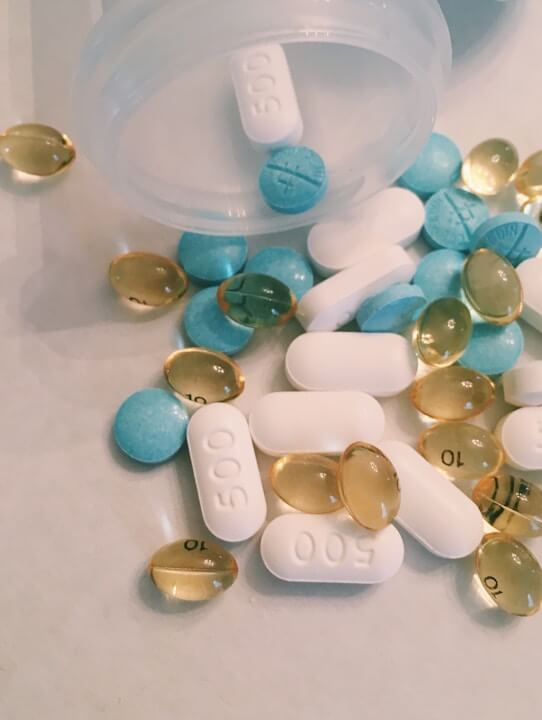Japan maintains some of the strictest pharmaceutical regulations in the world, which can catch many international travelers off guard.
The Japanese government carefully controls which medications can enter the country, regardless of their legal status in your home country.
The Japanese Pharmaceutical Affairs Law governs all medications and medical products in Japan, with the Ministry of Health, Labour, and Welfare (MHLW) serving as the primary regulatory authority.
This comprehensive legislation aims to ensure public health and safety by controlling the quality, efficacy, and safety of pharmaceuticals.
For travelers, the most important aspect to understand is the clear distinction between allowed and prohibited medications:
- Allowed medications: Generally include common over-the-counter products and prescription medications for personal use in limited quantities (typically a 30-day supply)
- Restricted medications: Require advance permission through an import certificate (Yakkan Shoumei)
- Prohibited medications: Cannot be brought into Japan under any circumstances, even with a prescription
What makes Japan’s regulations particularly challenging is that many common medications freely available in Western countries—including some cold medicines, pain relievers, and allergy medications—may contain ingredients that are strictly controlled or outright banned in Japan.
The consequences of non-compliance can be severe, ranging from confiscation of your medicine to detention, deportation, or even criminal charges in extreme cases.
This is why advance research is absolutely essential before traveling to Japan with any medication, including seemingly innocuous products like Zyrtec.
“Many travelers assume that because a medication is available over-the-counter in their home country, it must be acceptable to bring to Japan. This assumption can lead to serious complications at customs.”
Understanding these regulations isn’t just about legal compliance—it’s about ensuring you have access to the medications you need during your stay without unnecessary stress or health risks.
Taking time to research and prepare proper documentation before your trip can save you significant trouble at the border.
Can You Bring Zyrtec to Japan? Legal Status Explained

Yes, you can bring regular Zyrtec (cetirizine) to Japan for personal use. Japan’s medication import laws allow travelers to bring certain medications for personal use, and standard Zyrtec falls within the permitted category. However, understanding the specific regulations is crucial to avoid any issues at customs.
Regular Zyrtec vs. Zyrtec-D: A Critical Distinction
When preparing for your trip to Japan, it’s essential to know which version of Zyrtec you’re carrying:
- ✅ Regular Zyrtec (cetirizine): Allowed for import into Japan
- ❌ Zyrtec-D (cetirizine + pseudoephedrine): Strictly prohibited in Japan
The key difference lies in the active ingredients. While cetirizine is permitted, pseudoephedrine (found in Zyrtec-D) is classified as a stimulant under Japanese law and is strictly prohibited. Bringing Zyrtec-D into Japan could result in serious legal consequences, including detention.
Personal Use Quantity Limits
Japan allows travelers to bring in a maximum one-month supply of permitted medications like regular Zyrtec without special documentation. Here’s what this means in practical terms:
| Medication Type | Maximum Allowed Quantity | Documentation Needed |
|---|---|---|
| Regular Zyrtec | 30-day supply (30 tablets) | None for standard amount |
| Zyrtec Liquid | 30-day supply | None for standard amount |
| Zyrtec-D | Not permitted | N/A – Do not bring |
If you require more than a one-month supply of regular Zyrtec, you’ll need to obtain special permission through a Yakkan Shoumei (Medication Import Certificate) before your trip.
Different Zyrtec Formulations
Be aware that Zyrtec comes in various formulations, and not all are treated equally under Japanese law:
- Zyrtec Tablets/Pills: Standard cetirizine tablets are permitted
- Zyrtec Liquid/Syrup: Allowed if containing only cetirizine
- Zyrtec Children’s Formula: Permitted if it contains only cetirizine
- Zyrtec-D/Zyrtec Plus: Prohibited due to pseudoephedrine content
Always check the active ingredients list on your medication packaging. Any formulation containing pseudoephedrine, regardless of brand name, is prohibited in Japan.
Important: Even if your Zyrtec is legal to bring, always keep it in its original packaging with visible ingredients list to facilitate customs inspection.
Over-the-Counter Status in Japan
It’s worth noting that cetirizine (the active ingredient in regular Zyrtec) is available over-the-counter in Japan, though under different brand names like “Zyrtec AL” or “Allegra.”
This means that if you forget your medication or run out during your trip, you can likely purchase an equivalent at a Japanese pharmacy.
Also Read: Can You Take A Cruise To Japan? & Can You Take A Boat To Japan?
Documentation Requirements for Bringing Zyrtec to Japan

When traveling to Japan with Zyrtec (cetirizine), understanding the documentation requirements is essential to ensure a smooth entry through customs.
Japan has specific regulations regarding medication imports, and being properly prepared can save you from potential complications at the border.
Required Documentation for One-Month Supply
For quantities of Zyrtec that don’t exceed a one-month supply (typically 30 tablets or less), you generally don’t need to obtain pre-approval or special import certificates.
However, this doesn’t mean you should travel without any documentation. Japanese customs officials have the authority to question any medications you’re bringing into the country.
To avoid any issues, it’s recommended to carry:
- Original packaging: Always keep Zyrtec in its original packaging with clear labeling showing the active ingredient (cetirizine).
- Copy of your prescription (if applicable): Even though Zyrtec is available over-the-counter in many countries, having a prescription adds legitimacy to your medical need.
- Receipt of purchase: A receipt can help establish that the medication was legally obtained for personal use.
Doctor’s Letter Recommendation
While not strictly required for a small amount of Zyrtec, carrying a doctor’s letter is highly recommended and can significantly reduce potential complications at customs. This letter should:
- Be printed on official letterhead
- Include your name and the doctor’s contact information
- Specify the medication name (both brand name and generic name)
- State the condition being treated
- Indicate the dosage and treatment duration
- Be dated within the last six months
A sample statement might read: “This letter confirms that [Your Name] has been prescribed Zyrtec (cetirizine) 10mg daily for the treatment of seasonal allergies. This medication is necessary for the patient’s health and well-being during travel.”
Obtaining a Yakkan Shoumei for Larger Quantities
If you need to bring more than a one-month supply of Zyrtec to Japan, you must obtain a Yakkan Shoumei (薬監証明), which is an import certificate for medications. This document is issued by the Japanese Ministry of Health, Labour and Welfare.
The application process involves:
- Completing the application form: Download and fill out the “Application for Import Certificate of Pharmaceutical Products” form.
- Preparing supporting documents:
- Copy of prescription or doctor’s letter
- Document showing the ingredients and quantity of the medication
- Your flight itinerary
- Copy of your passport
- Submission timeline: Submit your application at least two weeks before your departure date.
- Submission method: Email the completed application and supporting documents to the appropriate Regional Bureau of Health and Welfare based on your port of entry.
- Receiving your certificate: The Yakkan Shoumei will be emailed back to you. Print this document and carry it with your medications when entering Japan.
Translation Considerations
Language barriers can complicate medication verification at customs. Consider these translation tips:
- Translate your doctor’s letter: Having your doctor’s letter translated into Japanese is not mandatory but can be extremely helpful. Professional translation services or Japanese consulates may offer assistance.
- Medication information card: Create a small card with these details in both English and Japanese:EnglishJapaneseCetirizineセチリジン (Sechirijin)Allergy medicationアレルギー薬 (Arerugī-yaku)For personal use個人使用のため (Kojin shiyō no tame)
- Digital translation tools: Have a translation app ready on your phone to facilitate communication with customs officials if needed.
Remember that clear documentation and preparation demonstrate your respect for Japanese regulations and your commitment to compliance, which can make a significant difference in your customs experience.
Also Read: Can You Take Food To Japan? & How Much Cash Can You Take To Japan?
Navigating Japanese Customs with Medications

When entering Japan with medications like Zyrtec, proper preparation ensures a smooth customs experience. Japanese authorities take medication imports seriously, and knowing the correct procedures will help you avoid unnecessary complications.
Keep Medications in Original Packaging
Always bring your Zyrtec or other medications in their original containers with clearly visible labels. This practice serves multiple important purposes:
- Proves the medication is what you claim it to be
- Shows the active ingredients (crucial for customs verification)
- Displays the prescribed dosage information
- Confirms the medication is for personal use
Customs officials may become suspicious of loose pills or medications transferred to unlabeled containers, potentially leading to confiscation or detailed questioning.
How to Declare Medications
When completing your customs declaration form on your flight to Japan, you’ll need to:
- Check “Yes” in the section asking if you’re bringing medications
- Be prepared to verbally declare your medications to customs officials
- Have all supporting documentation readily accessible (not buried in your luggage)
Pro tip: Keep medications in your carry-on luggage rather than checked baggage. This ensures they remain with you if your luggage is delayed and makes them easily accessible for customs inspection.
Customs Procedures at Japanese Airports
Upon arrival in Japan, you’ll proceed through the following steps:
- Complete the customs declaration form (typically distributed on the plane)
- Proceed through immigration control
- Collect any checked baggage
- Approach the customs inspection area
- Submit your declaration form to officials
- Present medications if requested for inspection
If bringing a larger quantity of medication or anything requiring a Yakkan Shoumei (import certificate), proceed through the red customs lane rather than the green one.
What to Expect During Screening
Customs officials may:
- Ask about the purpose of your medications
- Request to see your documentation (prescription, doctor’s letter)
- Examine the medication packaging and contents
- Verify quantities against Japan’s personal use allowances
If you’ve properly prepared all documentation and are within the allowed limits, the process is typically quick and straightforward. However, be prepared for the possibility of:
- Additional questioning about your medical condition
- Verification of medication ingredients against prohibited substance lists
- Measurement of quantities to ensure compliance with import limits
Language Considerations
Many customs officials speak limited English, so consider these communication strategies:
- Have the generic name of your medication (cetirizine for Zyrtec) written in both English and Japanese
- Use a translation app on your phone to assist with communication
- Bring a simple written statement in Japanese explaining your medical needs
- Learn basic Japanese phrases related to your medication and condition
By following these guidelines, you’ll be well-prepared to navigate Japanese customs with your allergy medications and start your trip without unnecessary complications.
Also Read: Can You Take Tylenol To Japan? & Can You Take Advil To Japan?
Alternatives if Your Medication is Restricted

If you discover that your specific allergy medication is restricted or you’re unable to bring sufficient quantities of Zyrtec to Japan, there are several practical alternatives available to you.
Japanese Equivalents to Zyrtec
Japan offers several cetirizine-based medications that are equivalent to Zyrtec:
- Zyrtec® (ジルテック) – The Japanese version of Zyrtec is actually available in Japan, though it typically requires a prescription
- Allercut® (アレルカット) – An over-the-counter cetirizine medication widely available in Japanese pharmacies
- Stona® (ストナ) – A popular brand with cetirizine formulations
- Contac® (コンタック) – Offers allergy relief options similar to Zyrtec
Many Japanese antihistamines contain the same active ingredient (cetirizine hydrochloride) as Zyrtec but may come in different dosages or formulations.
Finding Pharmacies in Japan
Locating a pharmacy in Japan is relatively straightforward:
- Look for stores with the “薬局” (yakkyoku) or “ドラッグストア” (doraggu sutoa) signs
- Major pharmacy chains include Matsumoto Kiyoshi, Sundrug, Welcia, and Tsuruha Drug
- In tourist areas, many pharmacies have staff who speak basic English
- Hotels and tourist information centers can direct you to the nearest pharmacy
- Google Maps in Japan reliably shows nearby pharmacies with operating hours
Most urban areas have pharmacies with extended hours, and some larger stores in major cities operate 24 hours.
Communicating with Japanese Pharmacists
Even with language barriers, you can effectively communicate your allergy needs:
- Prepare key phrases in Japanese:
- “I need allergy medication” = “アレルギーの薬が必要です” (arerugī no kusuri ga hitsuyō desu)
- “I have hay fever” = “花粉症です” (kafunshō desu)
- “Similar to Zyrtec/cetirizine” = “ジルテックと同じような薬” (jirutekku to onaji yōna kusuri)
- Use visual aids:
- Show the pharmacist your original Zyrtec packaging
- Display the chemical name “cetirizine hydrochloride” (セチリジン塩酸塩)
- Use translation apps like Google Translate or images of your symptoms
- Indicate dosage with fingers to show how many times per day you take the medication
Most pharmacists in Japan are trained to handle basic English medical terminology, especially in urban areas and tourist destinations.
Prescription Process for Tourists
If you need prescription-strength allergy medication in Japan:
- Visit a clinic or hospital:
- Tourist-friendly clinics are available in major cities
- Many hotels can recommend English-speaking doctors
- The Japan National Tourism Organization can provide information about medical facilities with English-speaking staff
- Consultation process:
- Bring your existing medication packaging
- Explain your allergy symptoms and current treatment
- The doctor will likely prescribe a Japanese equivalent
- Consultations typically cost between ¥3,000-¥10,000 (approximately $20-$70 USD)
- Fill your prescription:
- Japanese prescriptions are valid immediately
- Take the prescription to any pharmacy (薬局)
- Prescription medications are partially covered by Japan’s national health insurance, but tourists will pay the full price
- Medical facilities for tourists:
- The Japan Visitor Hotline (050-3816-2787) offers 24/7 multilingual medical assistance
- AMDA International Medical Information Center provides medical information in multiple languages
Remember that while this process may seem daunting, Japanese healthcare professionals are generally very accommodating to foreign visitors, and the quality of care is excellent.
Also Read: Can You Take Benadryl To Japan? & Can Your Bring Flonase To Japan?
Consequences of Non-Compliance with Japanese Drug Laws

Japan takes its medication import laws very seriously, and travelers who fail to comply—even unknowingly—can face significant consequences. Understanding these potential penalties is crucial for anyone planning to bring Zyrtec or other medications into the country.
Potential Penalties for Illegal Medication Imports
The Japanese authorities have established a strict framework of penalties for those who violate medication import regulations:
- Immediate confiscation of any medications that violate import regulations
- Fines ranging from ¥50,000 to ¥1,000,000 (approximately $350 to $7,000 USD) depending on the severity of the violation
- Detention at customs for extended questioning and investigation
- Potential imprisonment for up to 10 years in cases involving prohibited substances or large quantities suggesting intent to distribute
- Denied entry into Japan in severe cases or for repeat offenders
Real-Life Examples of Traveler Issues
Several documented cases highlight the seriousness with which Japanese authorities treat medication violations:
“I had my Zyrtec-D confiscated at Narita Airport because I didn’t realize it contained pseudoephedrine. I spent four hours being questioned by customs officials and nearly missed my connecting flight.” — American tourist, 2022
In another notable incident, a British traveler was detained for 18 days in 2019 after bringing in prescription medication containing codeine without proper documentation.
Though eventually released without charges, the experience significantly disrupted their travel plans and caused considerable stress.
Medication Confiscation Procedures
When medications are identified as potentially non-compliant:
- Initial screening occurs during baggage inspection or when medications are declared
- Secondary inspection by customs officials with pharmaceutical training
- Questioning about the purpose, quantity, and documentation for the medication
- Official documentation of the confiscation with a receipt provided to the traveler
- Disposal of the confiscated medications according to Japanese regulations
Travelers have no recourse to reclaim confiscated medications, even upon departure from Japan.
Legal Ramifications Beyond Immediate Penalties
The consequences of medication import violations can extend beyond the immediate penalties:
- Travel record flags may affect future entry into Japan
- Visa complications for those seeking to return to Japan for work, study, or extended stays
- Additional scrutiny during future entries into Japan or other countries with strict medication laws
- Legal costs if formal charges are filed and legal representation becomes necessary
For medications like Zyrtec (cetirizine), the standard formulation is typically allowed in appropriate quantities for personal use.
However, Zyrtec-D or any formulation containing pseudoephedrine falls under Japan’s prohibited substances list and will trigger these enforcement mechanisms regardless of having a valid prescription from your home country.
The best approach is always prevention through proper research and preparation before traveling to Japan with any medication, including seemingly innocuous over-the-counter allergy medications like Zyrtec.
Official Resources and Verification Methods
Before traveling to Japan with Zyrtec or any medication, it’s crucial to verify its legal status through official channels. The Japanese government provides several resources to help travelers navigate medication import regulations.
Japanese Ministry of Health, Labour and Welfare
The Ministry of Health, Labour and Welfare (MHLW) is the primary authority on medication regulations in Japan. They offer:
- Consultation Service: The MHLW provides a dedicated consultation service for travelers with medication queries.
- Phone: +81-3-3595-2400 (Pharmaceutical Safety and Environmental Health Bureau)
- Hours: Weekdays 9:30 AM – 5:00 PM (Japan Standard Time)
- Languages: English assistance is available
- Online Resources: The MHLW website contains detailed information about medication import regulations, though navigation can be challenging.
- The “Q&A” section addresses common questions about bringing medications to Japan
- Forms for the Yakkan Shoumei (medication import certificate) are available for download
Embassy and Consulate Resources
Your country’s embassy or consulate in Japan can provide valuable assistance:
- U.S. Embassy in Japan: Offers detailed guidance for American citizens on bringing medications
- UK Embassy: Provides UK-specific advice for travelers with prescription medications
- Australian Embassy: Maintains resources for Australian citizens regarding medication imports
These diplomatic missions regularly update their information to reflect current Japanese regulations and can assist in emergencies involving medication confiscation.
Narcotics Control Department
For medications containing controlled substances, the Narcotics Control Department offers verification services:
- Email: [email protected]
- Response time: Typically 1-2 business days
Pre-Travel Consultation Recommendations
Before your trip to Japan, consider these verification steps:
- Healthcare Provider Consultation: Schedule an appointment with your doctor at least 6-8 weeks before travel to:
- Discuss your medication needs during travel
- Obtain necessary documentation (prescriptions, doctor’s letters)
- Explore alternative medications if your current ones are restricted in Japan
- Pharmacy Verification: Ask your pharmacist about:
- The active ingredients in your medications
- Generic names (useful when checking Japanese regulations)
- Potential alternatives available in Japan
- Travel Clinic Visit: Specialized travel clinics can provide:
- Country-specific medication advice
- Documentation assistance
- Guidance on Japanese customs procedures
- Documentation Preparation: Gather the following for verification:
- Original prescription
- Doctor’s letter (stating medical necessity)
- List of all medications with generic names and dosages
Remember that regulations can change, so verifying information through official channels within 1-2 months of your travel date ensures you have the most current requirements.
Practical Tips for Travelers with Allergies Visiting Japan

If you’re an allergy sufferer planning a trip to Japan, bringing your Zyrtec is just one part of your preparation. Japan presents unique allergy challenges that require thoughtful planning to ensure your vacation isn’t derailed by unexpected reactions.
Packing Recommendations for Allergy Sufferers
Beyond your medication, consider these essential items for your Japan travel kit:
- Translation cards: Carry cards that describe your allergies in Japanese to show at restaurants and pharmacies
- Dust masks: High-quality masks (readily available in Japan) can protect against pollen during peak seasons
- Allergy-friendly toiletries: Bring your trusted brands as finding hypoallergenic products can be challenging
- Portable air purifier: Consider a small travel purifier for your accommodation if you’re sensitive to dust
- Eye drops: Japanese brands like Rohto are excellent but bring your preferred brand if you have specific needs
- Backup medication: Pack 50% more allergy medication than you think you’ll need
Japanese Allergy Seasons and Common Allergens
Japan has distinct allergy seasons that might differ from your home country:
| Season | Months | Primary Allergens |
|---|---|---|
| Spring | Feb-May | Cedar and cypress pollen (extremely high levels) |
| Summer | June-July | Rice pollen, mold spores |
| Fall | Aug-Oct | Ragweed, mugwort, various grasses |
| Winter | Nov-Jan | Indoor allergens (dust mites, pet dander) |
Cedar pollen allergy (kafunsho in Japanese) is particularly severe in Japan, affecting nearly 25% of the population. The government even issues daily pollen forecasts during peak season!
Regional Allergy Considerations
Different regions of Japan present varying allergy challenges:
- Tokyo and urban areas: Higher levels of pollution can exacerbate respiratory allergies
- Rural Japan: More exposure to natural allergens like pollen and insect allergens
- Hokkaido: Generally has lower pollen counts than other regions
- Kyushu and southern areas: Longer allergy seasons due to warmer climate
Emergency Medical Services Information
In case of severe allergic reactions:
- Emergency number: Dial 119 for ambulance services
- Japan Visitor Hotline: Call 050-3816-2787 for 24/7 multilingual assistance
- International clinics: Major cities have English-speaking medical facilities:
- Tokyo: St. Luke’s International Hospital
- Kyoto: Kyoto International Clinic
- Osaka: Osaka International House Foundation Clinic
Important: If you have severe allergies or anaphylaxis risk, learn how to say “I’m having an allergic reaction” in Japanese: “Arerugī hanō ga okite imasu” (アレルギー反応が起きています).
Accessing Medication in Japan
If you run out of Zyrtec or need additional allergy medication:
- Visit a “kusuri-ya” (drugstore) or “yakkyoku” (pharmacy)
- The Japanese equivalent of Zyrtec is called Zyrtec® or セチリジン (cetirizine)
- Show the pharmacist the generic name “cetirizine” written down
- Major pharmacy chains like Matsumoto Kiyoshi (マツモトキヨシ) often have staff with basic English skills
By preparing thoroughly and understanding Japan’s unique allergy landscape, you can enjoy your travels with minimal disruption from allergy symptoms.

